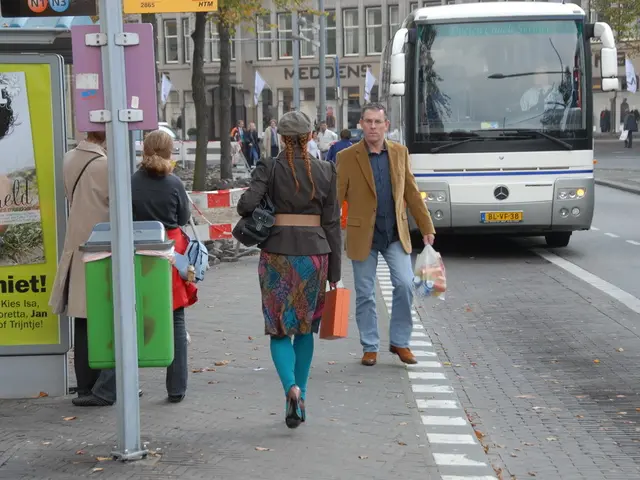Let's Nip Deepfakes and Revenge Porn in the Bud: Proposed Measures in Germany
The Sudden Rise and Consequences of Deepfakes and Revenge Porn
Call for Enhanced Safeguards against Deepfakes and Revenge Pornography - Requests for strengthened defenses against deepfake manipulations and the distribution of explicit content without consent
The digital age has brought about a unique form of nuisance, known as deepfakes and revenge porn. These deceptive and humiliating acts, particularly prevalent in Lower Saxony, have left countless women and young girls victimized. Deepfakes, where artificial intelligence manipulates private photos to insert them into explicit videos without consent, are becoming increasingly common. "Image-based sexual violence is a pervasive issue online," admits Lower Saxony's Minister of Justice, Kathrin Wahlmann (SPD).
Lower Saxony's Crusade for Change in Bad Schandau
During the Justice Ministers conference, Lower Saxony will propose measures to bridge the existing gaps in criminal law concerning sexualized violence. Although the Bundesrat has approved a bill to combat deepfakes for almost a year, the bill was seemingly left unattended by the old Bundestag. The new proposal primarily covers digital forgeries, but ignores other areas of criminal liability, such as the dissemination of personal data or secret photography in places like saunas and swimming pools.
The Urgency for a Stricter and More Inclusive Penal Code
The impact on victims can be severe, ranging from fear, social isolation, and emotional trauma to suicide in extreme cases. "It's our responsibility to stand firm against any form of image-based sexual violence," asserts Wahlmann.
Addressing the Issue on a Broader Scale
In addition to German efforts, the European Union (EU) is stepping up to both remove illegal content and mandate transparency for synthetic content. The Digital Services Act and the European AI Act are aims to label deepfakes and remove them upon report. A new EU directive targets the criminalization of non-consensual sexualized deepfakes across Europe, with member states expected to implement these rules by 2027. The German Women Lawyers Association has also put forward the idea of a specific, discrimination-sensitive criminal offense to address deepfake creation and sharing.
However, challenges remain, including the need for law enforcement and the judiciary to be equipped with specialized training to tackle such cases effectively. The lack of effective legal mechanisms to fight against deepfakes and revenge porn continues to be a significant concern.
- To combat the surge in deepfakes and revenge porn, Germany is proposing an extension of its current criminal law to bridge existing gaps, particularly addressing digital forgeries, but also considering other aspects such as the dissemination of personal data and secret photography.
- Recognizing the severity of the impact on victims, Lower Saxony's Minister of Justice, Kathrin Wahlmann, emphasizes the importance of addressing image-based sexual violence, not just in Lower Saxony, but across Germany.
- On a broader scale, the European Union is proposing the Digital Services Act and the European AI Act to label and remove deepfakes, with a new EU directive targeting the criminalization of non-consensual sexualized deepfakes across Europe, expected to be implemented by 2027.








